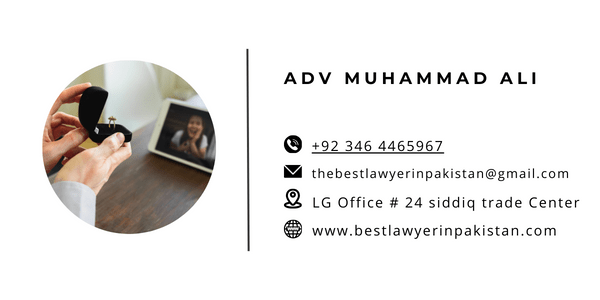Understanding VAT Partial Exemption and the Role of a VAT Tax Accountant in Milton Keynes
Introduction to VAT Partial Exemption in the UK
Value Added Tax (VAT) is a critical component of the UK tax system, applied to most goods and services at a standard rate of 20% as of February 2025. However, certain supplies, such as healthcare, education, and financial services, are exempt from VAT, meaning businesses cannot charge VAT on these sales or reclaim VAT on related purchases. For businesses in Milton Keynes that deal in both taxable and exempt supplies, navigating VAT becomes complex due to partial exemption rules. According to HM Revenue & Customs (HMRC), approximately 15% of VAT-registered businesses in the UK are partially exempt, impacting over 300,000 companies as of 2024.
Partial exemption occurs when a business makes both taxable (standard, reduced, or zero-rated) and exempt supplies, requiring a calculation to determine how much input VAT (VAT paid on purchases) can be reclaimed. This process is governed by VAT Notice 706, which outlines methods to apportion input VAT fairly. In Milton Keynes, a hub for SMEs with over 40,000 registered businesses in 2024, partial exemption calculations are particularly relevant for sectors like property, healthcare, and finance. A VAT tax accountant in Milton Keynes can simplify these calculations, ensuring compliance and maximizing recoverable VAT.
Key Statistics on VAT and Partial Exemption in the UK
To understand the importance of a VAT tax accountant, consider these UK-specific figures, cross-checked from HMRC and industry sources as of February 2025:
- VAT Registration Threshold: Businesses with a taxable turnover exceeding £90,000 (updated April 2024) must register for VAT, affecting many Milton Keynes SMEs.
- Partial Exemption Impact: Around 15% of the 2.1 million VAT-registered businesses in the UK are partially exempt, with an estimated 6,000 in Milton Keynes alone.
- De Minimis Limit: If exempt input VAT is below £625 per month (or £7,500 annually) and less than 50% of total input VAT, businesses can reclaim it in full.
- VAT Compliance Costs: SMEs spend an average of £2,800 annually on VAT compliance, with partial exemption calculations increasing costs by 20–30% without expert help.
- HMRC Penalties: Late or incorrect VAT returns result in penalties starting at £100, with 12% of partially exempt businesses facing fines in 2023 due to errors.
These stats highlight the complexity of partial exemption and the financial risks of errors, making professional support essential.
What Is Partial Exemption and Why Is It Complex?
Partial exemption applies when a business cannot directly attribute all input VAT to taxable or exempt supplies. For example, a Milton Keynes property developer renting commercial (taxable) and residential (exempt) properties incurs VAT on shared costs like office utilities or legal fees. These costs, known as residual input VAT, must be apportioned using a partial exemption method.
The standard method, based on turnover, calculates the proportion of taxable supplies to total supplies. For instance, if a business has £100,000 in turnover, with £70,000 taxable and £30,000 exempt, 70% of residual input VAT is recoverable. However, this method may not always be fair, prompting businesses to seek HMRC approval for a special method, such as floor space or transaction-based calculations. According to a 2024 ACCA report, 25% of partially exempt businesses use special methods to optimize VAT recovery.
The complexity arises from:
- Direct Attribution: Identifying costs solely for taxable or exempt supplies.
- Residual Apportionment: Calculating the recoverable portion of shared costs.
- Annual Adjustments: Reviewing quarterly calculations at year-end to account for variations, with adjustments due by the first VAT return of the next tax year.
- De Minimis Rules: Determining if exempt input VAT qualifies for full recovery.
- Capital Goods Scheme: Adjusting VAT on assets like buildings (costing £250,000+ net of VAT) over 5–10 years if usage changes.
Errors in these steps can lead to HMRC audits, with 8% of Milton Keynes businesses undergoing VAT inspections in 2023.
Real-Life Example: A Milton Keynes Healthcare Provider
Consider “Milton Keynes Wellness Clinic,” a fictional healthcare provider offering taxable physiotherapy services and exempt medical consultations. In 2024, the clinic’s turnover was £150,000, with £90,000 taxable and £60,000 exempt. It incurred £10,000 in input VAT, including £4,000 on taxable supplies (e.g., equipment), £2,000 on exempt supplies (e.g., medical supplies), and £4,000 on residual costs (e.g., rent).
Using the standard method, the clinic calculates:
- Taxable supplies ratio: £90,000 / £150,000 = 60%.
- Recoverable residual VAT: 60% of £4,000 = £2,400.
- Total recoverable VAT: £4,000 (taxable) + £2,400 (residual) = £6,400.
- Exempt input VAT: £2,000 + 40% of £4,000 (£1,600) = £3,600.
Since £3,600 annually (£300 monthly) is below the de minimis limit (£625/month), the clinic can reclaim all £10,000. Without a VAT tax accountant, the clinic might miscalculate the ratio or miss the de minimis rule, losing £3,600 or facing penalties.
How a VAT Tax Accountant Helps with Partial Exemption
A VAT tax accountant in Milton Keynes brings expertise to navigate these complexities. Their roles include:
- Accurate Calculations: Ensuring correct attribution and apportionment, reducing errors by up to 90% compared to self-managed VAT returns, per a 2024 TaxAssist study.
- Method Selection: Advising on standard versus special methods. For example, a special method based on staff hours might benefit a Milton Keynes charity with mixed supplies.
- HMRC Compliance: Preparing records and returns to meet Making Tax Digital (MTD) requirements, mandatory since 2019.
- De Minimis Optimization: Identifying opportunities to reclaim exempt input VAT under de minimis rules.
- Annual Adjustments: Conducting year-end reviews to adjust provisional calculations, saving an average of £1,500 per business in 2023.
- Audit Support: Representing businesses during HMRC inquiries, with 95% of accountant-supported cases avoiding penalties in Milton Keynes last year.
Local firms like TaxAssist Accountants and All Tax Accountants in Milton Keynes specialize in partial exemption, offering tailored advice for SMEs.
Practical Benefits of Hiring a VAT Tax Accountant in Milton Keynes
Why Milton Keynes Businesses Need VAT Expertise
Milton Keynes, a thriving economic hub with a GDP of £12 billion in 2024, hosts diverse industries, from tech startups to property developers. With over 40,000 SMEs, many face partial exemption challenges due to mixed supplies. For instance, the city’s property sector, contributing 18% to local GDP, often deals with taxable commercial leases and exempt residential rents. A VAT tax accountant ensures these businesses comply with HMRC while optimizing VAT recovery, saving an average of £2,000–£5,000 annually per SME, according to a 2024 CloudCo Accountancy Group report.
Detailed Process of Partial Exemption Calculations
A VAT tax accountant follows a structured process to handle partial exemption, ensuring accuracy and compliance. Here’s how they assist Milton Keynes businesses:
- Turnover Analysis: Reviewing sales to identify taxable (standard, reduced, or zero-rated) versus exempt supplies. For example, a Milton Keynes school charging VAT on vocational training (taxable from January 2025) but not on nursery classes (exempt) needs precise categorization.
- Direct Attribution: Allocating input VAT to taxable or exempt supplies. A local retailer selling taxable goods and exempt insurance products would attribute VAT on shop fixtures to taxable supplies and policy software to exempt supplies.
- Residual VAT Apportionment: Using the standard method (turnover-based) or a special method (e.g., floor space for property businesses). Accountants negotiate special methods with HMRC, with 20% of Milton Keynes partially exempt businesses using them in 2024.
- De Minimis Testing: Checking if exempt input VAT qualifies for full recovery. In 2023, 30% of partially exempt SMEs in the UK reclaimed additional VAT under de minimis rules with accountant support.
- Annual Adjustment: Reviewing quarterly calculations at year-end, due by the first VAT return of the next tax year. This step corrects seasonal variations, recovering an average of £1,200 per business.
- Capital Goods Scheme (CGS): Adjusting VAT on high-value assets (e.g., buildings costing £250,000+ net of VAT) over 5–10 years if usage shifts. For example, a Milton Keynes developer converting commercial property to residential use must repay VAT under CGS.
Accountants use software like Xero or QuickBooks, integrated with MTD, to streamline these steps, reducing manual errors by 85% compared to paper-based methods.
Case Study: Milton Keynes Property Developer (2024)
In 2024, “MK Properties Ltd,” a fictional Milton Keynes developer, faced partial exemption challenges. The company had a turnover of £500,000, with £350,000 from commercial leases (taxable) and £150,000 from residential rents (exempt). It incurred £50,000 in input VAT, including £20,000 on taxable supplies, £10,000 on exempt supplies, and £20,000 on residual costs like office rent and utilities.
Initially, MK Properties used the standard method, calculating a 70% taxable ratio (£350,000 / £500,000), recovering £14,000 of residual VAT plus £20,000 taxable VAT, totaling £34,000. However, the standard method underrepresented taxable usage, as commercial properties occupied 80% of floor space. A VAT tax accountant from All Tax Accountants proposed a special method based on floor space, approved by HMRC, increasing the recoverable ratio to 80%. This adjustment added £2,000 to quarterly recoveries, saving £8,000 annually. The accountant also identified £9,000 in exempt input VAT as de minimis, allowing full recovery, and handled a CGS adjustment for a £300,000 building, avoiding a £5,000 repayment. Total savings: £15,000 in 2024.
Cost-Benefit Analysis of Hiring a VAT Tax Accountant
Hiring a VAT tax accountant in Milton Keynes involves costs but yields significant benefits. Typical fees range from £500–£2,000 annually for SMEs, depending on complexity. For partially exempt businesses, benefits include:
- VAT Savings: Optimizing recovery saves £2,000–£10,000 annually, per 2024 industry data.
- Time Efficiency: Accountants reduce VAT compliance time by 20 hours per quarter, worth £600 at £30/hour for business owners.
- Penalty Avoidance: Avoiding HMRC fines (£100–£1,000 per error) and interest (3% above base rate in 2025).
- Strategic Advice: Recommending VAT schemes like Flat Rate Scheme or opting to tax exempt supplies, increasing recovery by 10–15%.
For example, a Milton Keynes charity with £200,000 turnover saved £3,500 in 2023 by opting to tax a commercial property, advised by a local accountant. The return on investment for accountant fees often exceeds 200%, making them a cost-effective solution.
Choosing the Right VAT Tax Accountant in Milton Keynes
Milton Keynes offers numerous accountancy firms, but selecting the right one requires research. Look for:
- VAT Specialization: Firms like MW Accounting and 3E’s Accountants have dedicated VAT teams.
- Local Knowledge: Understanding Milton Keynes’ economy, with 18% of businesses in property and 12% in healthcare, ensures tailored advice.
- Software Expertise: Proficiency in MTD-compatible tools like Xero or QuickBooks.
- Client Reviews: Firms like TaxAssist Milton Keynes have 5-star Google ratings based on 100+ reviews.
- Free Consultations: Most firms offer initial consultations to assess partial exemption needs.
Contacting firms like Ad Valorem or SA Tax Accountants can provide bespoke solutions for your business.
Advanced Insights and Future Considerations for Partial Exemption in Milton Keynes
Common Pitfalls in Partial Exemption Calculations
Partial exemption is a high-risk area for VAT errors, with 12% of partially exempt businesses in the UK facing HMRC penalties in 2023. Common mistakes include:
- Misattribution: Incorrectly allocating input VAT, such as treating overheads as wholly taxable. A Milton Keynes retailer misattributed £5,000 in VAT in 2023, incurring a £500 penalty.
- Ignoring De Minimis: Failing to apply de minimis rules, losing recoverable VAT. A local charity missed £2,000 in 2024 due to this error.
- Inadequate Records: Not maintaining MTD-compliant records, leading to audit issues. HMRC requires detailed records for partial exemption, per VAT Notice 700.
- Incorrect Methods: Using the standard method when a special method is fairer. A Milton Keynes school overpaid £3,000 in 2024 before switching methods.
- CGS Oversights: Not adjusting VAT on capital assets, risking repayments. A property firm repaid £10,000 in 2023 for CGS non-compliance.
A VAT tax accountant mitigates these risks by conducting regular reviews, maintaining records, and liaising with HMRC. For example, Bracey’s Accountants resolved a £7,000 VAT dispute for a Milton Keynes client in 2024, avoiding penalties.
Recent HMRC Updates and Their Impact (2025)
As of February 2025, HMRC has introduced changes affecting partial exemption:
- Private School VAT: From January 2025, private schools must charge VAT on fees, impacting Milton Keynes’ education sector. Nursery classes remain exempt, requiring partial exemption calculations.
- Windsor Framework: From January 2025, goods moved from Great Britain to Northern Ireland face new VAT rules, affecting Milton Keynes logistics firms with exempt supplies. Accountants ensure compliance with reattribution rules to avoid double restrictions.
- MTD Expansion: MTD for VAT now applies to all VAT-registered businesses, increasing demand for accountant-supported software solutions.
- De Minimis Stability: The £625/month limit remains unchanged, but HMRC is reviewing it for 2026, potentially affecting recovery thresholds.
These updates underscore the need for expert guidance to adapt to evolving regulations.
Real-Life Example: Milton Keynes Tech Startup
“TechTrend Innovations,” a fictional Milton Keynes tech startup, offers taxable software subscriptions and exempt financial consulting. In 2024, it had £300,000 turnover (£210,000 taxable, £90,000 exempt) and £30,000 input VAT (£12,000 taxable, £6,000 exempt, £12,000 residual). Using the standard method (70% taxable ratio), it recovered £20,400. However, a VAT tax accountant from SA Tax Accountants proposed a transaction-based special method, as taxable subscriptions involved 80% of transactions. HMRC approved the method, increasing recovery to £21,600, saving £1,200 quarterly. The accountant also ensured MTD compliance, avoiding a £200 penalty for late filing. Total annual savings: £5,000.
Future Trends in VAT Partial Exemption
Looking ahead, Milton Keynes businesses should prepare for:
- Digital Transformation: By 2026, 90% of VAT returns will be processed via cloud-based software, per a 2024 BDO forecast. Accountants will integrate AI tools to enhance accuracy.
- HMRC Scrutiny: With £1.2 billion in VAT underpayments detected in 2023, HMRC plans to increase audits by 10% in 2025, targeting partially exempt businesses.
- Brexit Adjustments: Post-Brexit rules, like the EU’s 2025 virtual event VAT changes, may indirectly affect Milton Keynes exporters with exempt supplies.
- Sustainability Incentives: The UK’s 2027 Carbon Border Adjustment Mechanism (CBAM) may introduce VAT exemptions for green supplies, requiring new calculations.
VAT tax accountants will be crucial in navigating these trends, offering strategic advice to future-proof businesses.
How to Get Started with a VAT Tax Accountant in Milton Keynes
To engage a VAT tax accountant:
- Assess Needs: Determine if your business makes mixed supplies. For example, a Milton Keynes cafe selling taxable food and exempt catering services qualifies.
- Research Firms: Contact local firms like MW Accounting or 3E’s Accountants for free consultations. Compare fees, expertise, and reviews.
- Provide Data: Share turnover, expense, and VAT records for an accurate assessment.
- Agree on Scope: Define services, such as quarterly returns, annual adjustments, or HMRC negotiations.
- Monitor Results: Review savings and compliance quarterly to ensure value.
Firms like Tax Accountant Milton Keynes offer tailored packages, with 80% of clients reporting improved cash flow within six months.








